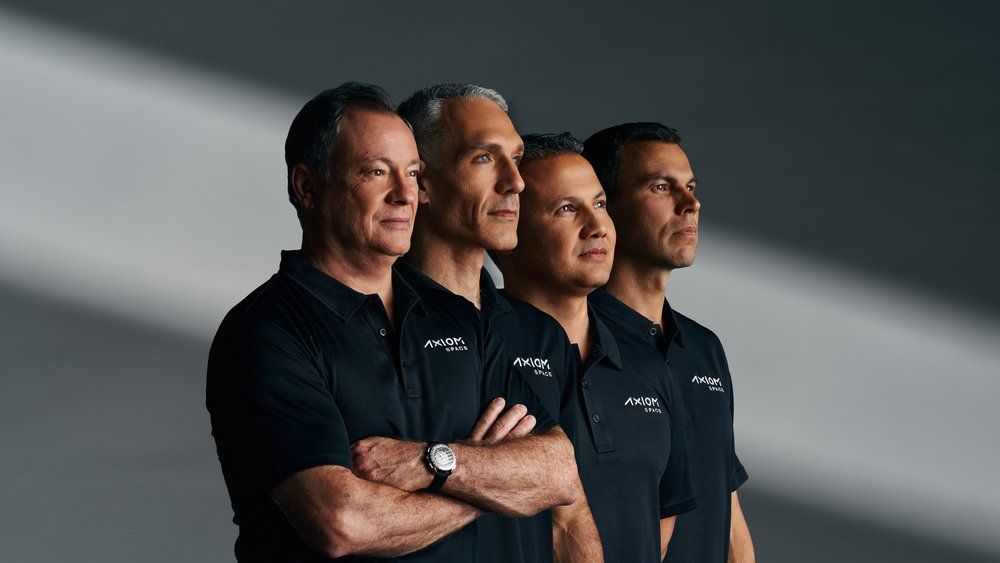SpaceX’s next private astronaut launch has been delayed until mid-January.
The company had been planning to launch Axiom Space‘s Ax-3 mission to the International Space Station on Jan. 9. However, the timeline has slipped by a little over a week, to Jan. 17, NASA announced today (Dec. 21).
The delay is “due to recent unfavorable weather conditions and changes in SpaceX’s launch manifest,” agency officials said today in a post on X (formerly known as Twitter).
The liftoff, atop a SpaceX Falcon 9 rocket, will occur from NASA’s Kennedy Space Center in Florida and send four people toward the ISS in a Dragon capsule. You’ll be able to watch it live here at Space.com when the time comes.
Related: Axiom Space names Ax-3 astronaut crew for SpaceX mission to ISS
As its name indicates, Ax-3 is the third private astronaut mission to the ISS organized by Houston-based company Axiom Space. All of these flights employ SpaceX hardware to send four-person crews to the orbiting lab for roughly two-week-long missions.
The first, Ax-1, launched in April 2022. Ax-2 followed in May of this year.
Ax-3 will be commanded by former NASA astronaut Michael López-Alegría, who now works for Axiom. (NASA requires that all private crewed missions to the ISS be helmed by a former agency astronaut).
Joining López-Alegría will be Italian Air Force Col. Walter Villadei, who flew to suborbital space with Virgin Galactic in June of this year, European Space Agency astronaut Marcus Wandt, and Alper Gezeravcı, who will become the first Turkish citizen to reach the final frontier.
Rough weather has delayed a number of SpaceX launches from Florida’s Space Coast lately, affecting other missions on the company’s manifest such as Ax-3.
For example, SpaceX initially aimed to pull off a Florida launch doubleheader on Dec. 11, lofting a batch of its Starlink internet satellites and the U.S. Space Force’s X-37B space plane atop a Falcon 9 and Falcon Heavy rocket, respectively. But the Starlinks didn’t get off the ground until this past Monday (Dec. 18), and the X-37B still hasn’t lifted off; it’s now scheduled to fly on Dec. 28.

